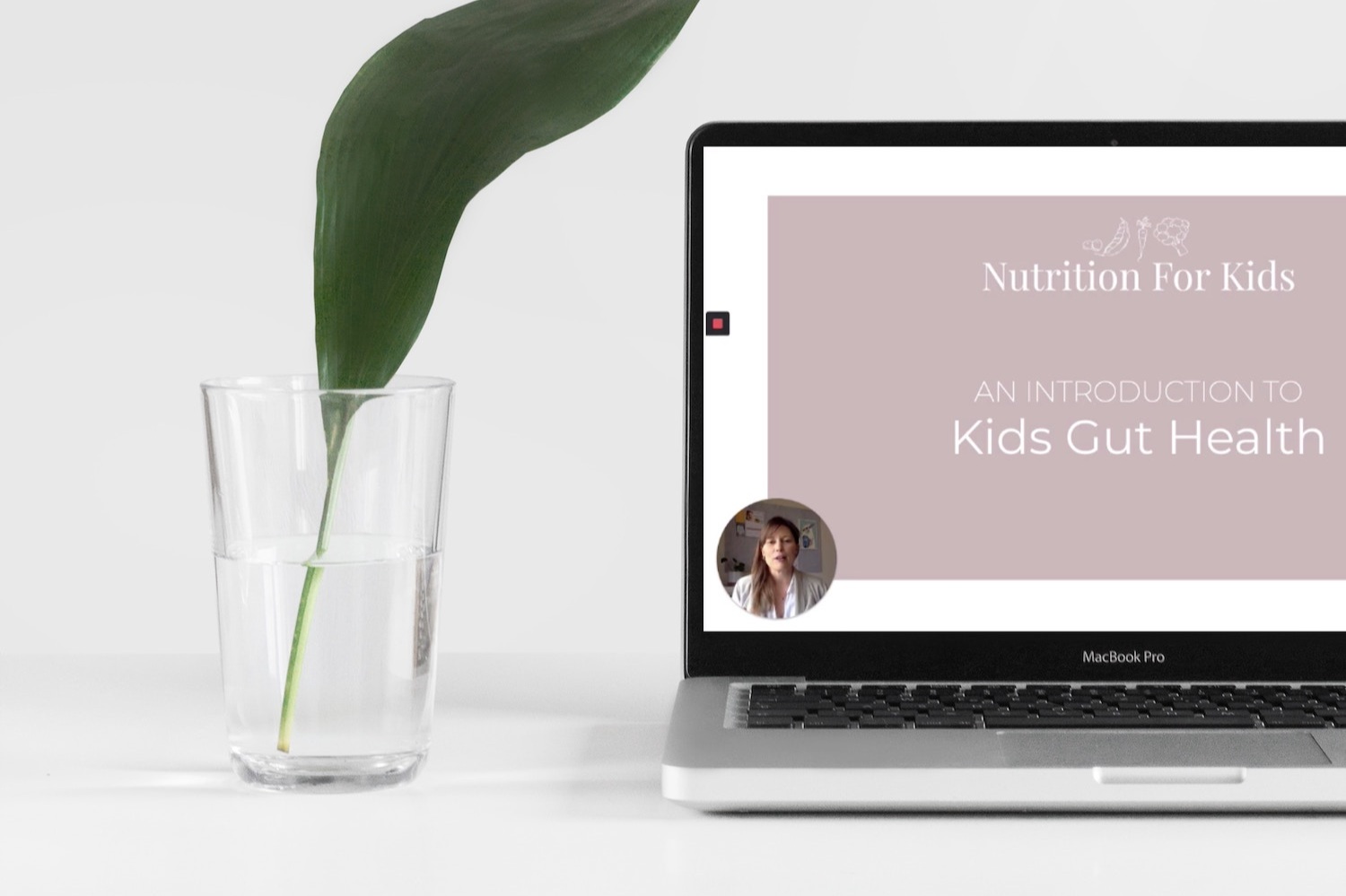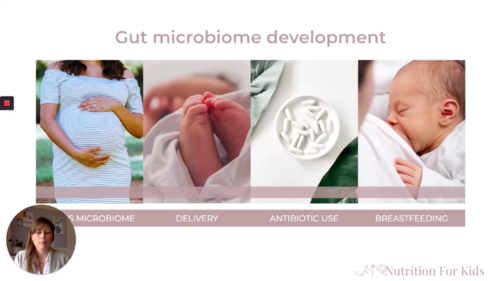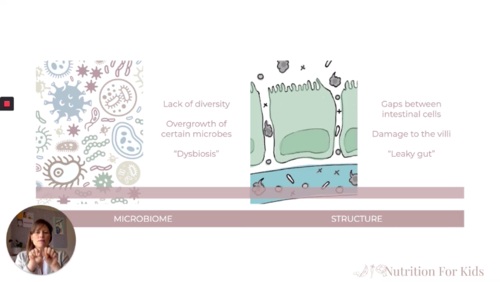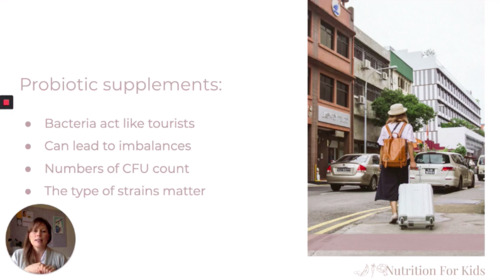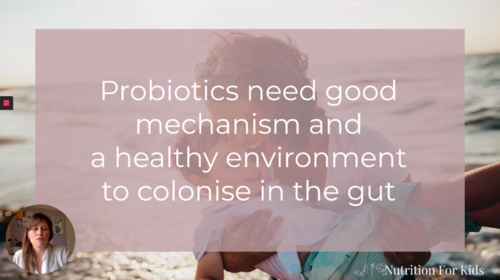8 ways to support your baby's gut microbiome
Supporting your baby’s gut microbiome can begin during pre-conception, continuing well into childhood.
Supporting your baby’s gut microbiome can begin during pre-conception, continuing well into childhood. The foundation of their gut microbiome can play a role in your baby’s health throughout their lifetime influencing their immunity, mental health, behaviour, autoimmune disease risk, weight status and so on.
Babies are born with a highly impressionable and immature gut flora before it develops into a bacterial composition similar to an adults by 2-3 years of age. As parents, we have a window of opportunity to enhance and support the development of our baby’s gut microbiome which is critical for maintaining good health.
Here are 8 ways you can have a positive influence on your baby’s gut health.
1. Aim for a vaginal birth
While birth doesn’t always go to plan, aiming for a vaginal birth is one of the best ways to help your baby establish a healthy gut microbiome. We now know, bacterial colonisation begins while the baby is in the womb, however, it’s during the journey down the birth canal and out through the vagina, the baby is inoculated with the most bacterial.
As a result, babies born by vaginal birth have a very different gut microbiome composition than those who are born via caesarean. Not only do baby’s born by c-section have decreased microbial diversity, but they also are found to have impaired immune responses and increased risk of developing autoimmune diseases such as coeliac or Crohn’s.
2. Consider vaginal seeding
If you are scheduled for a c-section birth for medical reasons, consider the option of vaginal seeding where your baby is swapped with your vagina flora within minutes of delivery. Vaginal seeding is still a relatively new concept, but it’s worth investigating whether it is right for you and your baby with your health practitioner.
3. Enjoy skin-to-skin contact
Skin-to-skin contact is not only a beautiful opportunity to bond with your baby, especially for dads, but it’s also a great way to expose them to your microbiome. The skin microbes are believed to display an anti-microbial action which can help to ward off pathogenic bacteria that may be present in the hospital environment.
DISCOVER the state of your child’s gut health
Take the Kids Gut Health Check-up quiz today to see how you can best support your child's health by healing and nourishing the gut.
Take the Kids Gut Health Quiz now.
4. Delay the first bath
When your baby is born you’re likely to notice a white, creamy film known as vernix on their skin. While it might be tempting to wipe it off, the biofilm helps to regulate the baby’s body temperature, it contains antioxidants and has skin moisturising properties. This and any other fluids on your baby’s skin after birth will also contain bacteria from mum’s vaginal flora if birthed vaginally. It’s best to gently rub the vernix in the skin and delay the bath for at least a week to yield the full benefits.
5. Try to breastfeed early
Breastfeeding is one of the most important ways you can help to establish your baby’s gut microbiome. Beyond providing vital nutrients to support their growth and development, breastmilk contains probiotics to colonise the gut and prebiotics to feed the bacteria so they can grow and thrive.
If you’re unable to breastfeed, you may want to consider donor milk or a goat formula as it is of a similar composition to breastmilk. You could also consider a formula that contains probiotics or add a quality multi-strain probiotic powder to the formula.
6. Consider probiotics
As the maternal gut microbiome plays such a huge role in the development of a baby’s gut microbiome, it’s worth considering probiotics as part of your pre-conception, pregnancy and post-natal care.
In the event you or your baby have required antibiotics any time during the pregnancy, delivery or post-birth, taking probiotics can help to restore some of the beneficial bacteria lost. Be sure to speak to your health professional about the right probiotic strains for you and your baby.
7. Adopt a nutritious diet
Whether you are pregnant or breastfeeding, eating a whole food diet that’s rich in prebiotic and probiotic foods can help to build a healthier microbiome for both you and baby. Reducing your intake of high-refined carbohydrates, sugars and artificial sweeteners will also be beneficial to your gut health.
Pregnancy and breastfeeding are very demanding processes on the body, so it’s vital you are consuming a balanced diet to replenish your stores and provide your baby nutrient-rich breastmilk.
8. Delay introduction of solids
While it might be tempting to start solids as soon as your baby shows interest, it is recommended you wait until 6 months of age. This is because your baby’s digestive system is still immature and enzymes required to digest many foods are yet to be produced.
Before one years old, solid food are considered just for fun and your baby should be getting the majority of its nutrients from breastmilk or formula. When they are ready to start solids, choose healthy whole foods and focus on as much variety as possible.
If you need individual advice about supporting or improving your baby’s gut microbiome, take up the opportunity for a free 15-minute Wellness Discovery call. You can book and find more information about our nutrition consultation services here.
Want to learn more about kids gut health?
The Kids Gut Health Webinar provides you with an introduction to the gut microbiome.
Over 49 minutes, nutritionist Sarah Appleford discusses what gut health actually means, the gut microbiome and what occurs in an unhealthy gut.
Watch the Kids Gut Health Webinar here.



